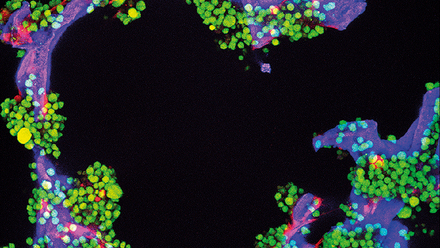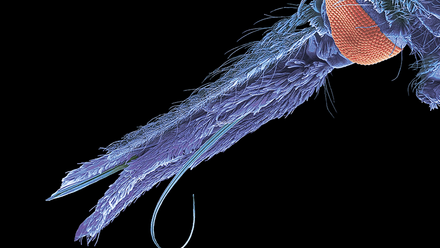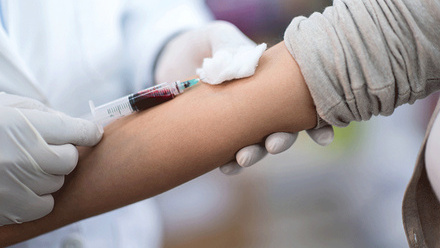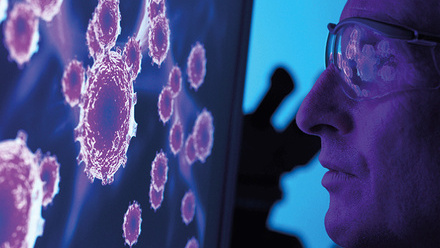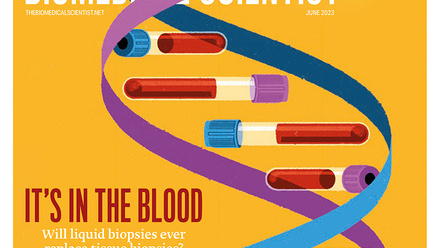Supporting biomedical research
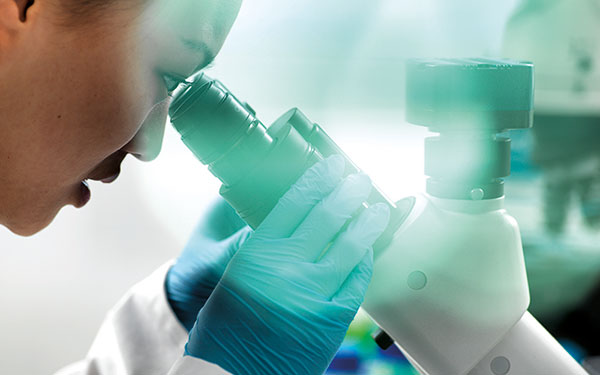
In 2020, the IBMS awarded research grants totalling almost £18,000.
From identifying novel strategies to treat osteoarthritis, to investigating whether human papillomaviruses cause urinary cancer, the IBMS has supported four cutting-edge biomedical research projects this year. Here the recipients outline their work.
Paul Waller
Associate Professor in Biomedical Science, Kingston University London
Mechanisms of hepatic iron overload in dysmetabolic iron overload syndrome
Recent evidence indicates that one-third of patients with non-alcoholic fatty liver disease (NAFLD) will also have a condition known as dysmetabolic iron overload syndrome (DIOS). This condition is characterised by mild increases in total body and liver iron stores, with the presence of fatty liver and/or metabolic abnormalities, after exclusion of any known cause of iron excess, such as alcoholism. It is not yet confirmed why iron overload occurs in these individuals, however, clinical observational studies highlight an independent role of iron in developing metabolic disease, such as type 2 diabetes.
Due to the increasing prevalence of metabolic syndrome, DIOS is believed to be the most common iron overload condition, with more than 10 cases for each case of hereditary haemochromatosis.
The development of DIOS appears to be related to altered regulation of iron transport associated with hepatic steatosis, insulin resistance and inflammation, as well as macrophage iron retention. It also appears to be linked to a state of hepcidin resistance. There are currently limited studies on molecular mechanisms of iron excess in DIOS.
The grant awarded by the IBMS will allow the purchase of ELISA kits for the measurement of ferroportin, ZIP14 and DMT1. Results from these analyses, together with those from routine investigations, will provide insight into altered iron homeostasis in patients with DIOS.
Dr Hossein Ashrafi
Associate Professor, Kingston University London
Association of high-risk human papillomavirus (HPV) types and urinary cancers (prostate and bladder)
Infection by high-risk human papillomaviruses (HPVs) have been implicated as causative agents in a variety of cancers. HPVs have been found to cause close to half of vaginal, penile, anal, and oral cancers. These findings suggest that HPV DNA might be transported from the original infection site to other organs and may be responsible for the development of cancer in various organs. Indeed, our published findings, partially supported by the IBMS, have shown the evidence for the presence of HPV types in breast cancer.
Studies on HPV role in urinary carcinogenesis have generated controversy and it is still not clear whether HPV is present in prostate and bladder tumours. Despite the medical importance and the high incidence rate of urinary cancers among the global population, there are no studies in the UK, to our knowledge, that investigate the implication of HPV infection in prostate and bladder cancer development. However, my research team in Kingston University and Kingston Hospital have now reported the first documented identification of 12 other high-risk HPV types in freshly obtained prostate and bladder cancer tissues obtained from the hospital. This provides a solid basis to advance research in a crucial health priority affecting people with these cancers. The knowledge acquired will lead to a better understanding of risk factors other than those established to date. Cancer prevention, viral carcinogenesis and urinary cancers are rapidly developing sectors of the field of biomedical science and the prospect of investigating the use of vaccines to prevent cancer is very appealing.
The knowledge acquired will lead to a better understanding of risk factors.
Dr Ian Locke
Director of Learning, Teaching and Quality in Biomedical Science, University of Westminster
Effect of urocortin I on osteoclast differentiation and activity: a new prospect for the prevention of loss of bone density in OA
Osteoarthritis (OA) is one of the most widespread skeletal diseases, reducing the quality of life for more than 8 million people in the UK. OA can develop in any joint, but is common in those bearing the heaviest weight (e.g. hips and knees) and is characterised by cartilage degradation and deterioration of the underlying subchondral bone. Although chondrocytes are the only cells present in the cartilage matrix, the picture becomes more complex at the cartilage-bone interface. The development of a pro-inflammatory, pro-apoptotic environment in the cartilage can influence the balanced activity of osteoclasts, osteoblasts and osteocytes – the cells responsible for turnover and maintenance of the bone.
The aim of this project is to further investigate the role of the endogenous peptide, urocortin I, which we have shown to not only preserve the chondrocytes that maintain and repair cartilage, but also to have significant effects on osteoclast differentiation and activity. Osteoclasts are the cells responsible for bone resorption and healthy bone structure is dependent on a dynamic equilibrium between the activity of osteoclasts and that of osteoblasts, which are the cells responsible for bone formation. An imbalance between bone resorption and formation may occur under certain conditions and can contribute to various rheumatic diseases, including OA, rheumatoid arthritis and osteoporosis, amongst others. This project aims to further our understanding of how urocortin I modulates osteoclast differentiation and activity and the signalling pathways involved in that modulation. Understanding the role of the urocortin system in controlling osteoclast reabsorption could identify a possible route for dual pharmacological intervention in OA, where the prevention of chondrocyte death and excessive osteoclast reabsorption is critical.
An imbalance between bone resorption and formation may occur and can contribute to various rheumatic diseases.
Kavindiya Modarage
PhD Researcher - University of Wolverhampton
The role of Rnd3 in kidney morphogenesis and function
My research project aims to investigate the expression of Rho family GTPase 3 gene (Rnd3) and its influence in the manifestation of diseases in the kidneys and potentially secondary effects in the cardiovascular system. Identifying the exact role of Rnd3 and its effect concerning co-morbidities that focus on the heart and kidneys during development and adulthood will be a fundamental aspect of the investigation. Another crucial component of the investigation will be the relationship between defective Rnd3 expression and its potential association with rare, recessive genetic conditions, such as autosomal recessive polycystic kidney disease, nephronophthisis and Meckel–Gruber syndrome. My investigation is based on a novel mouse model created by the International Mouse Phenotyping Consortium. Tissues retrieved from mouse models will be utilised to fulfil the agendas of the objectives. The first objective is to characterise the kidney phenotype of postnatal and adult Rnd3 mutant mice, next to study cell behaviour by using precision-cut kidney slices obtained from mouse kidneys at P3 and P14 to generate real-time 3D video. The final objective is to investigate the involvement of Rnd3 in cellular signalling and disease mechanisms.
The theory behind the investigation is to demonstrate the role of Rnd3 in the kidneys, and, from this knowledge, find the connection between abnormalities in Rnd3 expression and the rise of phenotypic similar autosomal dominant polycystic kidney disease (ADPKD). As investigations reveal further insight into the molecular mechanisms of Rnd3, this may also reveal why and how specific symptoms develop.
This information could then be utilised to provide valuable insight into novel pharmacological drugs that could be commissioned in clinical trials focusing on improving the prognosis of ADPKD patients.

